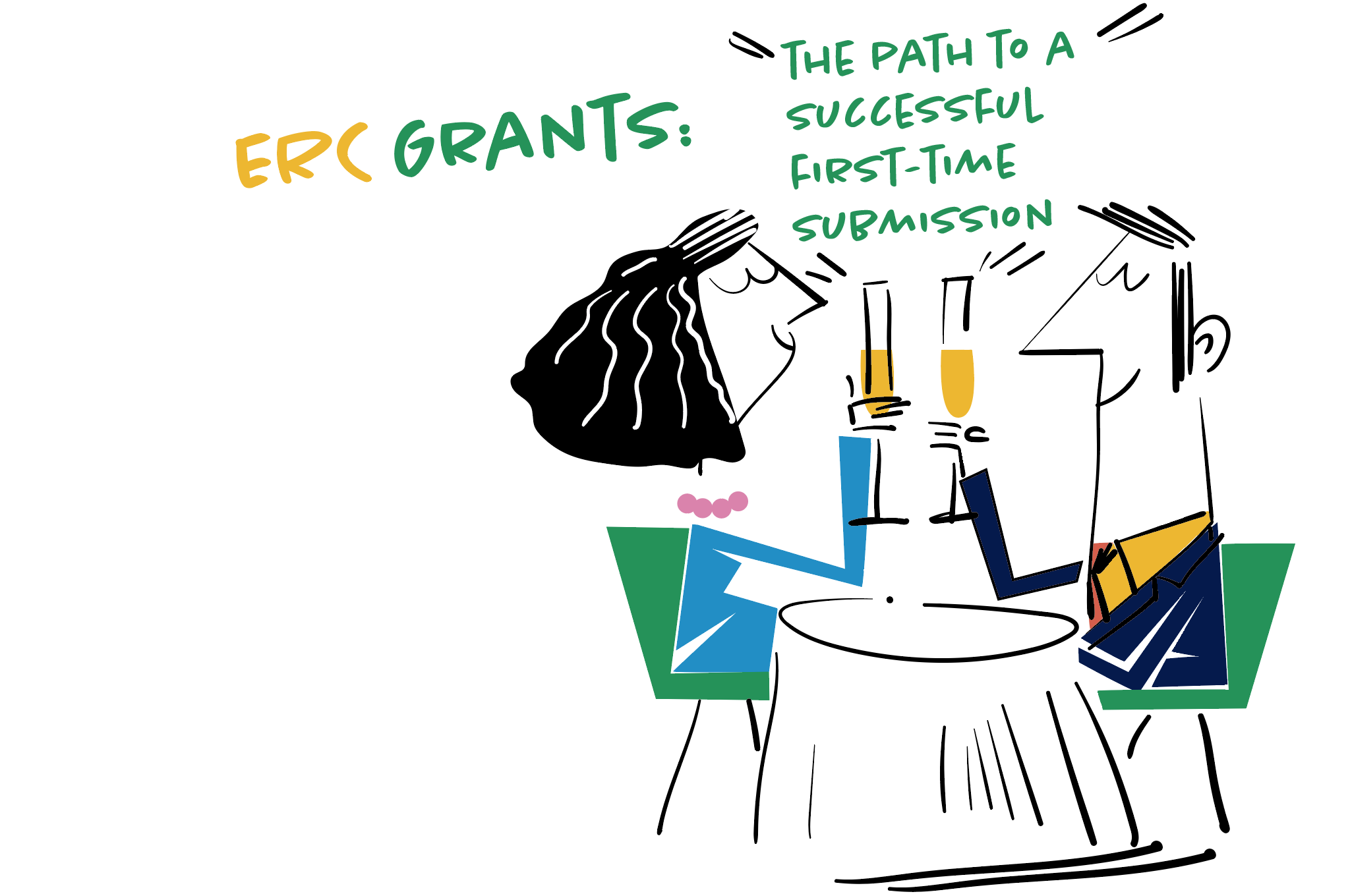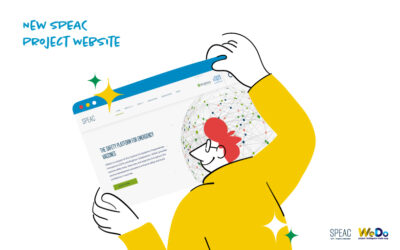With low success rates, increasing competition and a focus on scientific excellence, applying for an ERC grant may seem like an impossible goal when considering the idea.
Here some tips based on our experience working with a successful first-time applicant:
- Assess your CV: Is it now the right time?
Before anything revise your CV, put it in writing (if possible, in the format that will be required in the application) to identify your strengths and weaknesses. Compare it with the specific requirements of the ERC grant you would like to apply to. Compare it with other ERC recipients from recent calls. Work with your scientific strategic plan in hand and assess if now is a good timing or if you need to invest a bit more on strengthening your CV.
- Validate your idea: don’t do it alone!
Start by revising EC available resources: the ERC website is full of resources and data, and your NCPs are accessible and ready to help.
And then look for relevant, available counterparts, with ERC experience if at all possible, and connect to ask for their assistance as reviewers or critics of your ideas and your proposal. Arrange for one-on-one discussions in which you can present your thoughts and your project plan and have them to comment, argue, and push your ideas forward. Don’t be afraid of sharing and if needed, consider the establishment of an NDA and even of an economic compensation for their assistance if acceptable.
- Plan: Define a calendar and stick to it!
Set realistic timelines for both strengthening your CV and developing your project plan, considering publication goals, other ongoing grants and other grant applications, and the resources required for making your project plan excellent, groundbreaking and high-risk whilst feasible. Your calendar should consider strengthening actions in addition to the actual writing time of the application, so think of a six to twelve months plan at least.
- Train: work to build on useful writing skills!
Investing in a training course is something to consider, especially if you are not experienced in writing applications in English or in responding to EC calls. Those courses will help you identify key aspects, will give you tips on how to approach the different application sections, and will help you strategize on the writing. There are available options at reasonable prices that also include revisions, and you don’t need to repeat the investment once done!
And then give yourself the time for revising your writings, to incorporate the feedback received from your reviewers and to ensure consistency, clarity and appealing storytelling.
- Evaluate: get your allies with you to work on this!
Work with your manager, or a professional third party, to help you monitor the progress of your proposal preparation and reassess status and planning. Work with them to advance and to secure progress.
And remember, it is both ok to go ahead and try or to pause the ERC proposal development to build on your CV, work on your network or revisit your scientific goals according to the progress of the field. The time window for each of the ERC applications should give you room for either!



